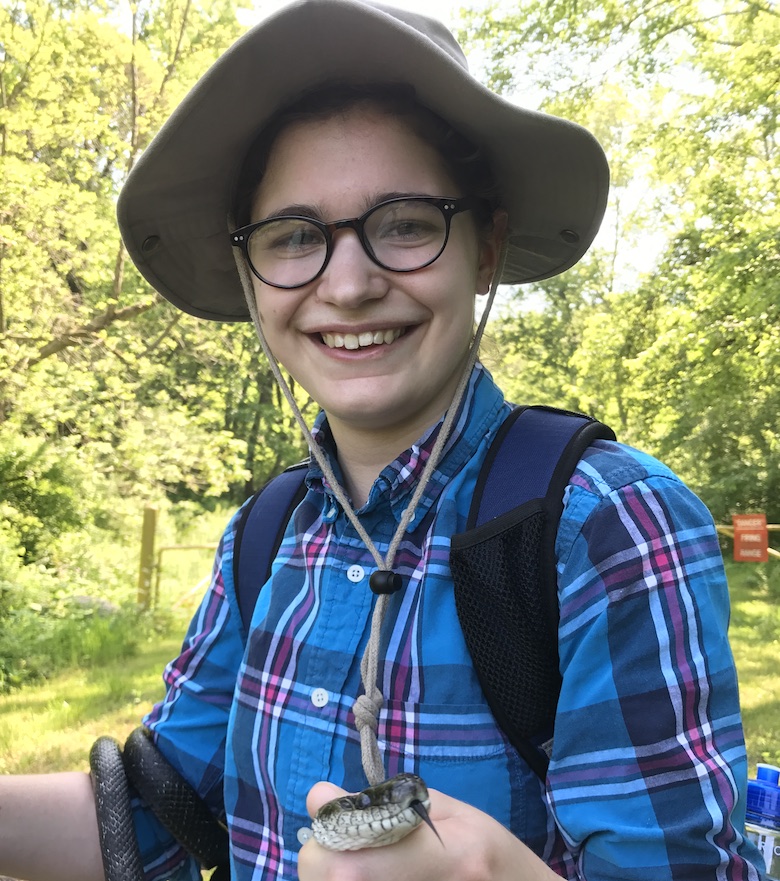Emily Russavage, a 2020 graduate of Wilkes University, has received a prestigious National Science Foundation Graduate Research Fellowship. Russavage, of Dunmore, Pa., earned a bachelor of science degree in biology. The fellowship, which is awarded to early-career scientists, includes a three-year annual stipend of $34,000 and an annual $12,000 allowance for tuition and fees that is paid to the graduate institution. Russavage will use the fellowship to enter a doctoral program in entomology at Texas A&M University in fall 2020. While there, she will study pests, their predators and their effect on crops. The Graduate Research Fellowships are the oldest graduate fellowships of their kind. The National Science Foundation notes that the program “has a long history of selecting recipients who achieve high levels of success in their future academic and professional careers.”
Russavage is only the second Wilkes student to apply and receive the research fellowship while she was an undergraduate. Biology alumna Leila Hadj-Chikh, a 1997 graduate, also was awarded the fellowship as an undergraduate. Two other Wilkes biology alumni, Andrew Bartlow and Rachel Curtis-Robles, both 2010 graduates, each received the graduate research fellowship when they were already enrolled in their doctoral programs. Bartlow received his doctorate from the University of Utah and is now a Director’s Post-Doctoral Research Fellow at Los Alamos National Laboratory in New Mexico. Curtis-Robles earned her doctorate at Texas A&M and is now an epidemiologist in San Mateo, Calif.
Russavage’s selection for the fellowship reflects the significant research experience she accrued while she was a Wilkes student. Such opportunities are a hallmark of a Wilkes education. Her senior research project with Ned Fetcher, coordinator of Wilkes Institute for the Environment, studied the effects of climate change on arctic plants. As a member of the research team of Jeff Stratford, associate professor of biology, she studied the reproductive success of the wood thrush, which is one of the most rapidly declining bird species in Pennsylvania. She and Stratford also have co-authored a paper examining differences in the predatory habits of birds in rural, suburban and urban environments using clay caterpillars. The paper has been submitted for publication to the journal Urban Ecosystems.






